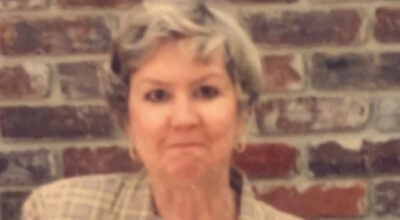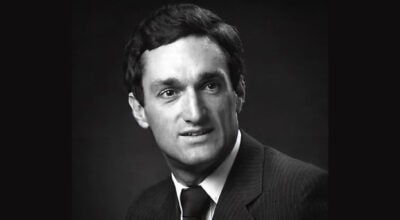Peter George Fitzpatrick
Published 5:02 pm Monday, June 15, 2020
Peter George Fitzpatrick died at home in the Old Vicarage in the village of Sturry, England, with his wife, Shelby Ferris Fitzpatrick, and his daughter and son, Tesher and Vagi Fitzpatrick, at his bedside.
Peter was widely revered as one of the most influential legal theorists in the English-speaking world. Since his death from cancer on Wednesday, May 20, at the age of 78, there has been an outpouring of sadness on social media from his former students, colleagues, and collaborators from all over the world.
Peter was born in Australia, in rural Queensland. He spent his early years in Dalby, “in a house with no books” and won a scholarship to Downlands College, a Jesuit boarding school in Towoomba, where Peter discovered a love of literature and poetry.
He joined the training for the priesthood after finishing school but left the seminary in his first year as a novice because he was unwilling to accept the prohibition on questioning authority. He returned to Dalby where he found a job as a clerk at a small law firm, studying law by correspondence at the University of Queensland at the same time.
By the end of his degree, Peter was admitted to practice and offered a job as a tutor at the University of Queensland. He was about to accept the position when one of his lecturers at the university recruited him for a job at the law firm of Baker and McKenzie in London. Peter accepted the position and moved to London where he met Shelby, his future wife. (In his words, the “most significant thing that’s happened to me”).
Two years later, Peter was offered a position at Queens University Belfast. This was the time that the “troubles” began in Northern Ireland, and Peter and Shelby became deeply involved in the community. Belfast was also where they celebrated the birth of their daughter Tesher.
A few years later, another offer arrived that would decisively shape Peter’s career as a scholar. He was approached by Justice John Minogue, head of the Supreme Court in Papua New Guinea, then still under Australian administration, and asked to go there to conduct research on village-level economic organization. Peter accepted the offer and spent six years in Papua New Guinea, where his and Shelby’s second child, Vagi, was born.
While researching and writing his report, Peter also worked for Michael Somare, later to become the first Prime Minister of an independent PNG. Those experiences led to Peter’s first book, “Law and the State in Papua New Guinea,” published in 1980.
After six years in PNG, Peter returned to the UK where he accepted a job at the University of Kent. During his 20 years at Kent, Peter was a key figure in the establishment of the British “Critical Legal Conference,” a movement that was to prove crucial in fostering critical legal scholarship in the United Kingdom, which continues today.
He left Kent in 1996 to join the faculty at Queen Mary, and several years later became Anniversary Professor in Law at Birkbeck College, University of London, where he stayed until his retirement. Peter also held an honorary chair at Kent and a fellowship at the Oñati International Institute for the Sociology of Law.
Peter’s most widely known work, “The Mythology of Modern Law,” published in 1992, changed the way a generation of scholars approached the relation between race, law and empire. A 25-year retrospective was held at Melbourne University in 2017, and a series of reflections on the book’s influence was published in the Australian Feminist Law Journal. Other publications include “Dangerous Supplements: Resistance and Renewal in Jurisprudence, and Modernism and the Grounds of Law.”
Peter also published several books on law, race, resistance and the nation, along with works on law and literature. He was also renowned for his work on the French philosopher and historian Michel Foucault. Among his students, Peter was revered as an extraordinary teacher, valued for his extreme generosity and humor and remembered for the way he and Shelby welcomed his students into their lives. His ashes will be scattered in the garden at the Old Vicarage that Peter and Shelby cultivated with loving care for decades and that has offered pleasure and comfort to countless friends and family members for more than 40 years.
In addition to his wife Shelby, his daughter Tesher, his son Vagi and Vagi’s wife, Valentina Buonumori, Peter is survived by his brother Tony Fitzpatrick of Hobart, Tasmania, Australia, his sister Josephine Higham and husband Clarie of Rockhampton, Queensland, Australia, and his beloved grandchildren, Lois and Martha Livingstone, and Isaac and Erin Fitzpatrick. He is survived as well by his large and devoted extended family in Australia and the US.



